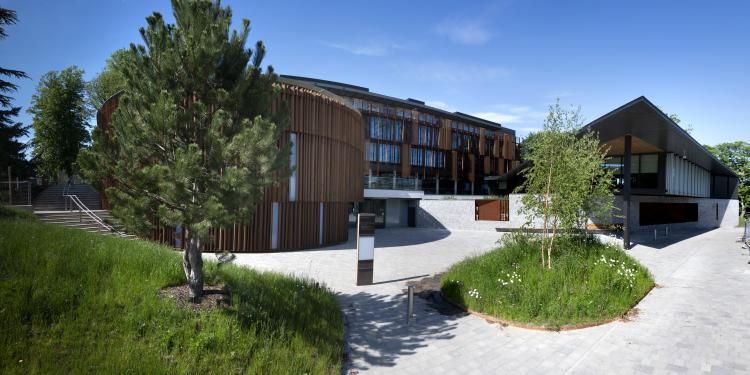Scheme:
Phase 1 Public Sector Decarbonisation Scheme
Technologies used:
LED lighting, Air source heat pump, Solar PV, Building Energy Management System (BEMS)
Region:
South East
Client type:
Higher education institution
Your partner for a low carbon future

Phase 1 Public Sector Decarbonisation Scheme
LED lighting, Air source heat pump, Solar PV, Building Energy Management System (BEMS)
South East
Higher education institution
Annual savings
Total grant value
Annual carbon savings tCO2e*
The University of Winchester was awarded £3,120,518 as part of the Phase 1 Public Sector Decarbonisation Scheme (PSDS) to decarbonise its heating methods and increase its energy efficiency. The funding, provided by the Department for Business, Energy & Industrial Strategy (BEIS) and delivered by Salix, has enabled the University to upgrade its technologies and move closer to its carbon-saving goals.
Winchester prides itself on being a university for sustainability and social justice which works to champion global positive change. Having declared a climate emergency in 2020, it has committed to being carbon neutral by 2030, although it aspires to attain this goal in 2025.
To complete this mission, the University is installing air source heat pumps (ASHPs), solar panels and building management systems which will significantly reduce energy requirements. The ASHPs will replace the 34 gas-fired boilers while the Solar PV will increase the University’s on-site electricity production by over 200%.
The work is in line with the University’s Carbon Management Programme which was first published in 2006 and provides a route map designed to deliver significant campus-wide energy reduction projects. The low carbon technologies will save a total of 2,702,353 kW a year and builds on the University’s achievement of reducing its carbon footprint by 65% since the 2006 baseline year (kWh/m2 using location based methodology).
We are one of the first institutions to make this switch, supporting the Government’s carbon reduction targets. The University of Winchester has reduced our carbon emissions by over 90% per m2 since our baseline year of 2006.
The University was first awarded the National Union of Students’ (NUS) Responsible Futures accreditation in 2019 as a result of the partnership between the University and its Students’ Union, and their success in embedding sustainability into all aspects of student life and studies.
Moreover, all programmes require the teaching of the UN Sustainable Development Goals (SDGs) while climate change modules are offered together with Carbon Literacy training. The University is a member of the COP26 Group of Universities, a signatory of Race to Net Zero and to the SDG Accord.
The students and staff are encouraged to lower their carbon footprint by getting involved in the University’s sustainable schemes. Options include the provision of interest-free loans for train season tickets, a reusable cup scheme and a cycle to work scheme combined with excellent provision of cycle hoops on campus. The cycling programme includes a monthly Bike Doctor repair service which visits campus to carry out free repairs and provides free cycle loan to students to encourage take-up. Allotments are provided and Green Grants made available to students who have ideas as to how to improve sustainability on campus.
January 2022
*tonnes of Carbon Dioxide, calculated using Green Book emissions factors for electricity published by the government.
